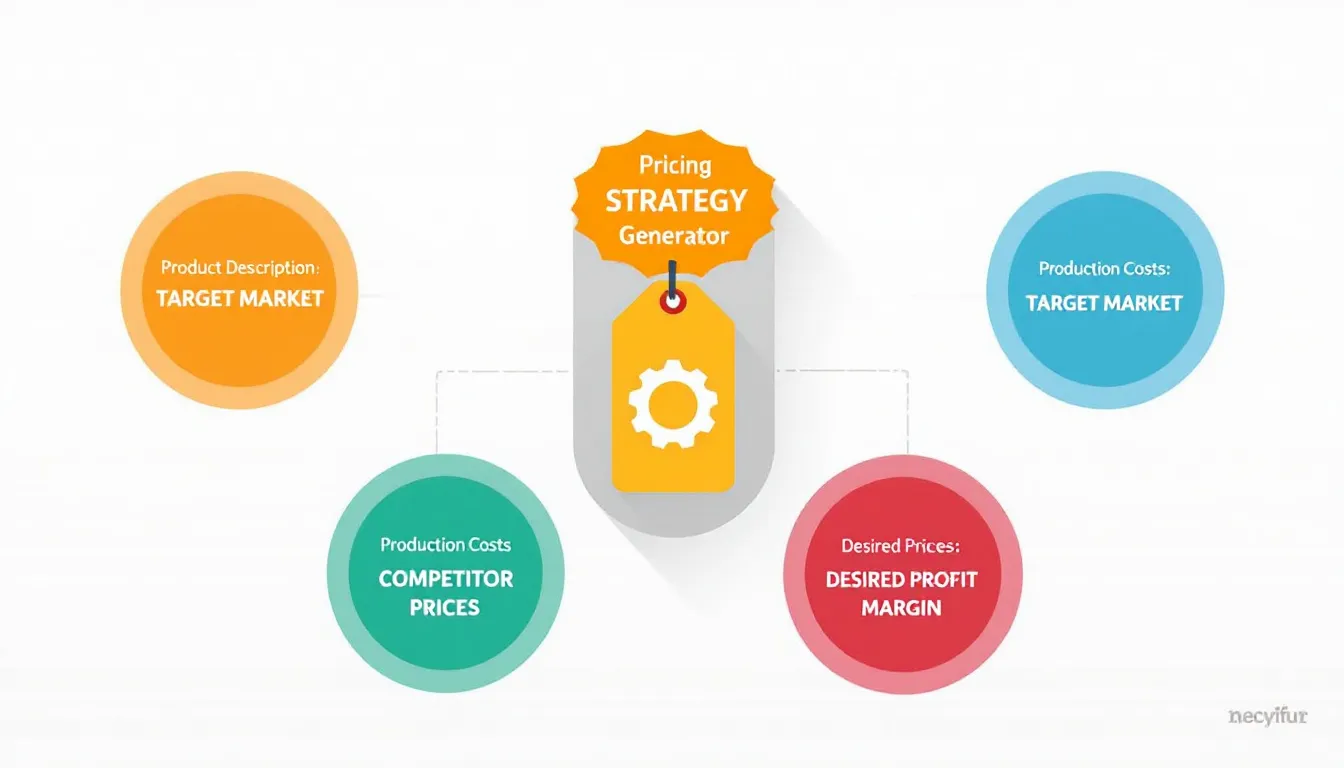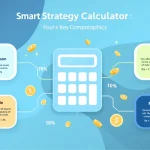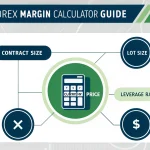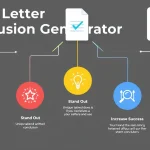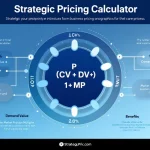Pricing Strategy Generator
Is this tool helpful?
How to Use the Pricing Strategy Generator Effectively
This Pricing Strategy Generator helps you create a tailored pricing plan for your product by analyzing key data points. To get the most accurate results, follow these steps carefully:
-
Product Description: Enter a detailed explanation of your product, highlighting its main benefits, features, and what sets it apart. Example inputs:
- “A compact electric bike with a foldable frame, long-lasting battery, and integrated GPS tracking.”
- “A biodegradable phone case made from plant-based materials with shockproof design and custom prints.”
-
Target Market: Describe your ideal customer group, including demographics, habits, and preferences. Example inputs:
- “Young urban professionals aged 22-35 who value sustainability and tech-savvy products.”
- “Parents with children aged 5-12 looking for safe, educational toys.”
- Production Costs per Unit (USD): Input the total estimated cost for producing one unit, including materials, labor, and overhead. Examples: $120 for the electric bike or $8 for the biodegradable case.
- Competitor Prices (USD): List prices of similar products in your market, separated by commas, to help benchmark your pricing. This field is optional. Example: “999, 1149, 1299” for electric bikes or “7.99, 9.99, 11.50” for cases.
- Desired Profit Margin (%): Specify your target profit margin as a percentage to guide price calculations. This is optional, but useful. Examples: 35% for the bike or 50% for the phone case.
Once you complete the form, click “Generate Pricing Strategy.” The tool will analyze your inputs to provide a customized pricing recommendation that balances costs, market factors, and profitability goals.
What Is a Pricing Strategy and Why It Matters
A pricing strategy is a deliberate plan businesses use to set product prices. It shapes how your product fits into the market, influences customer perception, and impacts profitability. Pricing isn’t just about covering costs—it plays a crucial role in your business success.
Purpose of a Pricing Strategy
- Maximize profits while staying competitive
- Match pricing with what your target customers are willing to pay
- Support your product’s unique value and brand positioning
- Help you decide between market penetration or premium pricing
- Ensure your revenue model sustains long-term growth
Benefits of a Clear Pricing Strategy
- Better Profit Margins: Optimize prices to cover costs and increase earnings effectively.
- Stronger Market Position: Place your product clearly as either a premium or value option.
- Enhanced Customer Value Perception: Price signals quality and builds trust in your product.
- Competitive Edge: Use market and competitor insights to set prices that work for you.
- Pricing Flexibility: Adjust prices as market conditions and costs evolve.
- Informed Business Decisions: Gain insights about your customers, costs, and market demand.
Practical Uses of the Pricing Strategy Generator
This tool is designed to support a variety of pricing decisions, helping you set competitive, profitable prices for your products. Here are some common scenarios where it proves valuable:
1. Launching a New Product
When introducing a new gadget, like a wireless charging pad costing $25 to produce, targeting consumers who want tech-savvy home accessories, and aiming for a 40% profit margin, the generator helps find a price that covers costs and attracts buyers. For example, it might calculate a price near:
$$ \text{Price} = \frac{\text{Production Cost}}{1 – \text{Profit Margin}} = \frac{25}{1 – 0.40} = 41.67 $$This rounds to about $42, setting a competitive and profitable retail price.
2. Adjusting Prices Due to Changed Costs
If your handcrafted soap cost rises from $3 to $4.50 and your competitors sell similar items from $8 to $12, the tool recommends a new price that keeps your profit margin while aligning with the market.
$$ \text{Price} = \frac{4.50}{1 – 0.50} = 9.00 $$Setting the price at $9 positions you right in the competitive range.
3. Seasonal or Promotional Pricing
For a summer drink mix with a unit cost of $2 aiming for 65% profit during peak months, the generator suggests a price that balances sales and profit:
$$ \text{Price} = \frac{2}{1 – 0.65} \approx 5.71 $$A rounded price of $5.99 can help maximize margin during the busy season. You might introduce discounts later without eroding perceived value.
4. Premium Product Pricing
For a high-end leather backpack with a $150 production cost and a target margin of 75%, where competitors’ prices range around $700 to $900, the generator guides you to a strong premium price:
$$ \text{Price} = \frac{150}{1 – 0.75} = 600 $$Price adjustments to $699 or higher help position the product as exclusive while keeping profit goals intact.
Why Use This Pricing Strategy Generator?
This tool simplifies pricing decisions by combining your product details, market data, and financial goals into actionable price suggestions. Here’s what makes it effective:
Data-Driven Pricing Recommendations
It uses your inputs to create precise pricing plans, reducing guesswork and helping you set competitive, profitable prices.
Saves Time and Resources
You won’t need to manually analyze market data or run complex calculations. The generator does it all instantly.
Incorporates Competitor Pricing
By entering competitor prices, you get pricing advice grounded in your market environment.
Balancing Profit Margins and Market Appeal
You set your profitability goals, and the tool helps ensure prices meet those while remaining attractive to your target customers.
Customizes Output to Your Product
Your unique product features and target customer profile influence the pricing suggestions, making them relevant and actionable.
Easy to Experiment and Adjust
Change inputs to test different pricing scenarios and find the best approach before final decisions.
Important Disclaimer
The calculations, results, and content provided by our tools are not guaranteed to be accurate, complete, or reliable. Users are responsible for verifying and interpreting the results. Our content and tools may contain errors, biases, or inconsistencies. Do not enter personal data, sensitive information, or personally identifiable information in our web forms or tools. Such data entry violates our terms of service and may result in unauthorized disclosure to third parties. We reserve the right to save inputs and outputs from our tools for the purposes of error debugging, bias identification, and performance improvement. External companies providing AI models used in our tools may also save and process data in accordance with their own policies. By using our tools, you consent to this data collection and processing. We reserve the right to limit the usage of our tools based on current usability factors.
